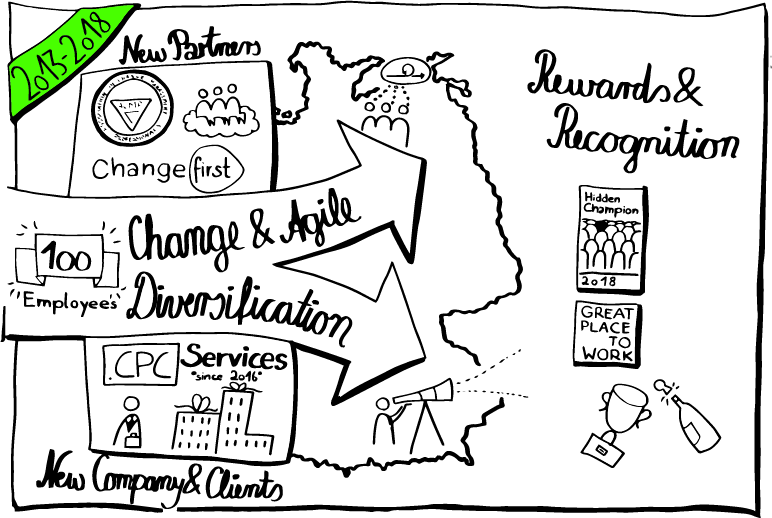The story of CPC begins on a former farm in central Hesse. Three managers from one of the world's largest management consultancies and a former airline captain set up their office on the first floor and founded "Connex Personnel Consulting GmbH" in 1993.
As the founders come from very different corners of Germany, they work and live together in the old half-timbered house during the week. They have one strong thing in common: from their personal experiences, they have developed the ambition to establish a consulting company that provides advice just as professionally as the renowned consulting firms - but with a fresh approach that is atypical for the industry: the involvement of all employees - and not just the partners - in the company, the obligation to promote their own employees and contribute to their professional and personal development and the aim of minimizing staff turnover. The four founders also want to consciously break with the sometimes arrogant and self-important demeanor that is - not entirely unjustifiably - attributed to the industry. This claim is expressed in the slogan that the four consultants have adopted and which still characterizes CPC's self-image and corporate culture today: "Competent consulting - without arrogance"
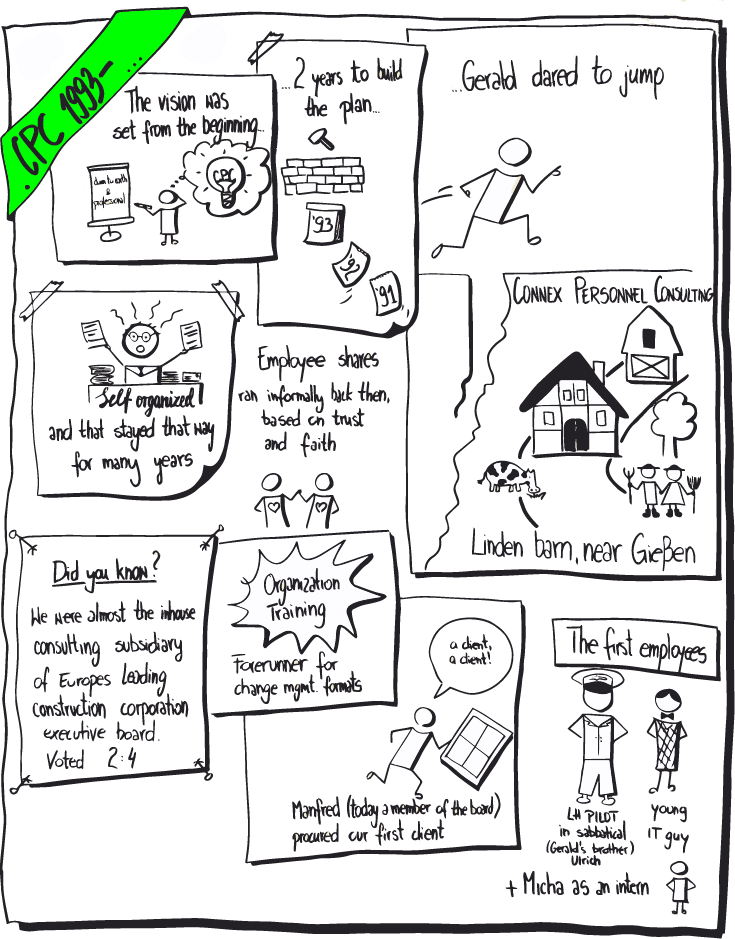
In the early years, SMEs were the most important customer base.
During this time, CPC builds up a high level of Change Management know-how and implementation expertise. Medium-sized companies prove to be difficult customers: Although there is an undisputed need for consulting, the motto is usually: "The quicker your own reorganization project is successful, the quicker you'll be out again". As a result, CPC increasingly focused on large companies at the end of the 1990s in order to establish sustainable business relationships that extend beyond individual projects.
CPC has grown by 15 to 20 % every year since it was founded.
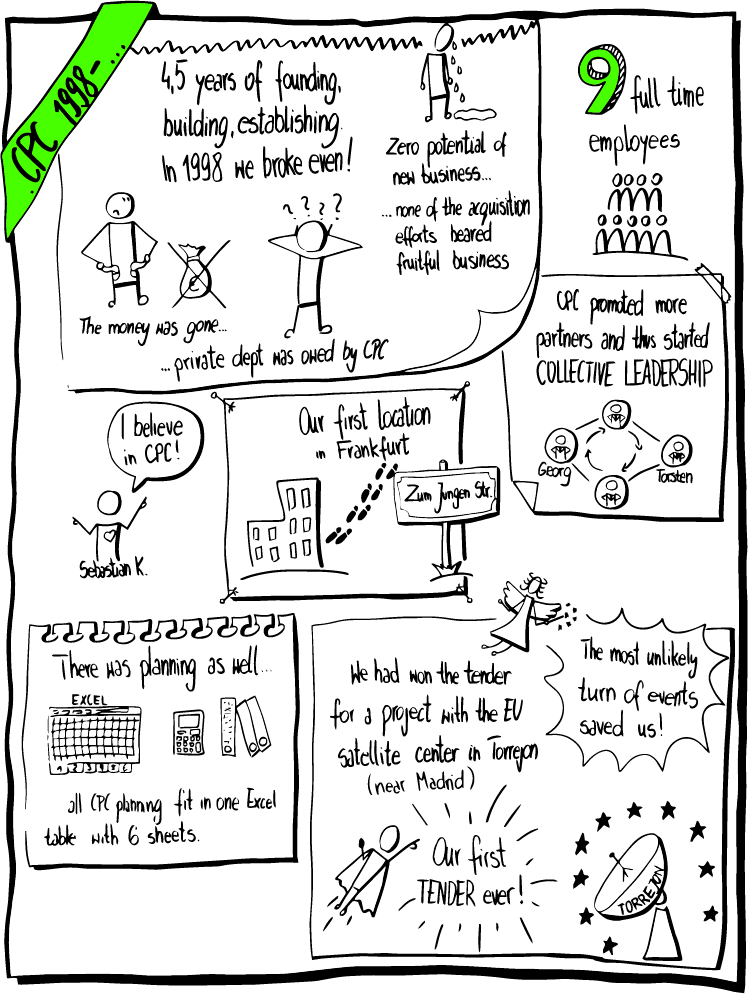
Because more and more and ever larger projects are being handled in large companies, but project management is very underdeveloped in corporations at this time, there is an opportunity to adapt PM to specific customer needs in practice. Subsequently, CPC very quickly builds up further expertise and offers a wide range of PM services. The PM methodology proves to be a regular growth driver, as it also enables the younger consultants to become productive very quickly and deliver immediate added value to customers.
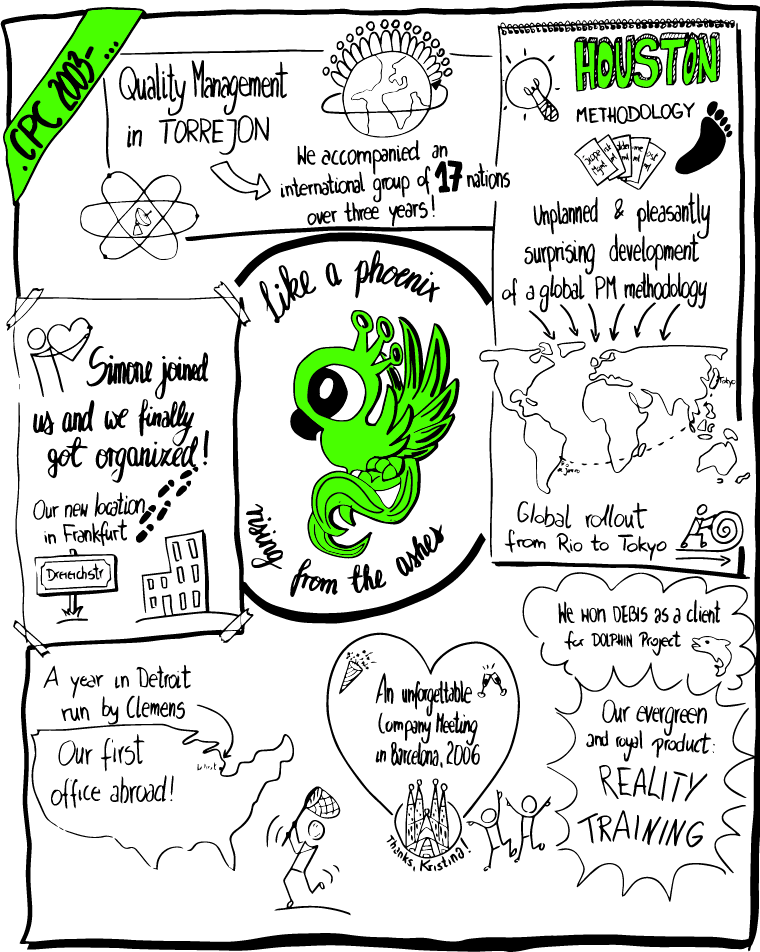
When it comes to strategic changes, e.g. the implementation of new For example, when implementing new management guidelines or a service excellence model, companies face the challenge of persuading a large number of managers to rethink their approach. Reality training for Change Management allows participants to experience the "before and after" under 1:1 real conditions. Through their own perception, coaching and feedback, the participants put "old" ways of acting to the test and develop the motivation to rethink and act differently. From 2000 to 2004, the virtual reality training companies "Dolphin Aircraft", "Kronau Druckmaschinen AG", "Banco Dos Povos" and "World Motors AG" were established. Further companies were added in the following years. The unusual learning effects of the format regularly trigger storms of enthusiasm among the participants. The training concept is so well received that there are even some curious side effects that nobody expected. The Banco Dos Povos recruiting pages, for example, receive numerous serious applications. In the Dolphin Aircraft online store, merchandising articles are purchased that exist only once. And at an automotive supplier trade fair in Detroit, unrest breaks out because World Motors AG is located on the 22nd floor of the trade fair building - a sports car manufacturer that none of the suppliers present know - but which everyone would like to get to know. The term "reality training" suddenly takes on a different, quite literal meaning.
In 2003, CPC, together with T-Systems, receives the training award from ZfU IBS, Zentrum für Unternehmensführung AG for the Dolphin development program. 2007 CPC receives the International German Training Award for its Reality Trainings. At the same time, the demand for PM services for major projects explodes. More and more companies want to play it safe with their most important projects and engage CPC consultants for the central project tasks. At the end of 2007, CPC has more than 50 permanent consultants under contract.
program aims to train all 2,500 top managers of a large telecommunications company in service competence and to raise their awareness of the topic in the long term. Around 80 reality training courses are held simultaneously at three different locations.
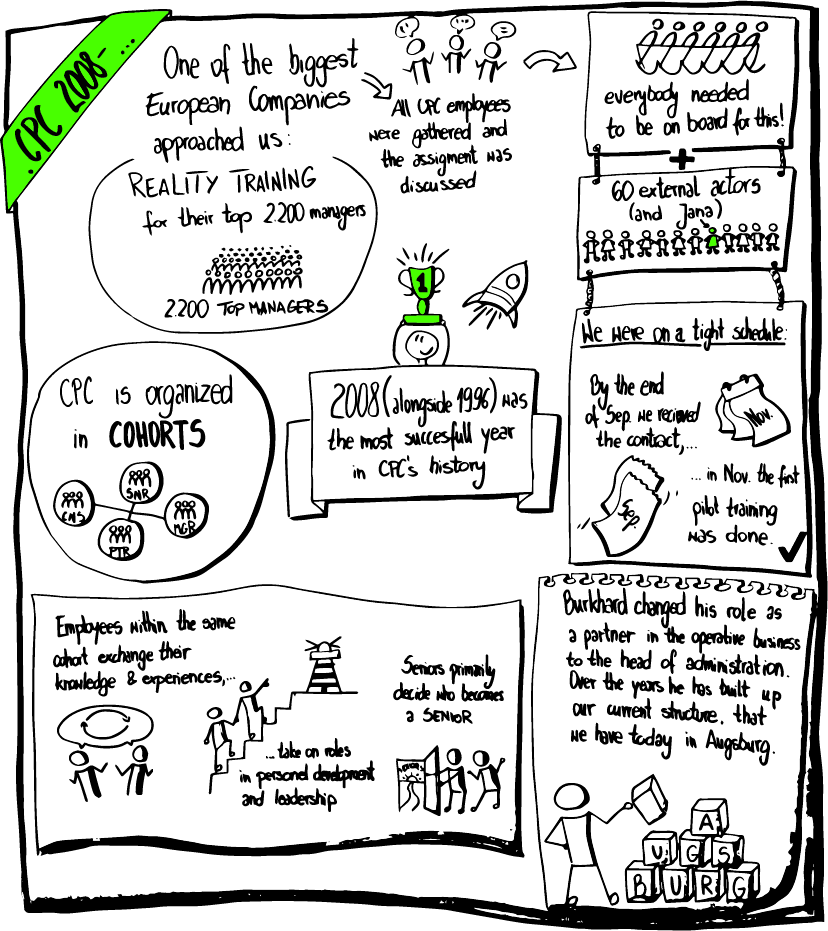
Up to 30 actors, trainers and helpers are involved in each training session.
In 2008, CPC is named top employer for the first time in the "Top Employers in Germany" analysis conducted by Handelsblatt/Junge Karriere and CRF. This underlines the satisfaction of the employees with their company. In 2009, CPC receives an even better assessment and is one of the top 10 employers in Germany. We have been a Great Place to Work® since 2011.
So what is the provisional conclusion after 25 years?
In any case, it is remarkable that people find each other here who fit together - even though there is probably more diversity in our company than elsewhere.
Although there is probably more diversity in our company than elsewhere. But what is CPC's recipe for success? An outsider might say that "CPC has damn good people". Customers keep asking how we find these employees. Hardly anyone questions why the people become so good. After all, you are not born a good consultant. Rather, there is an intensive training, coaching and role model process behind it. What customers then perceive as "good" is a combination of characteristics and values that stand for CPC: Commitment, entrepreneurship, team play as well as a positive image of people. Long-standing and excellent customer relationships are the result.
